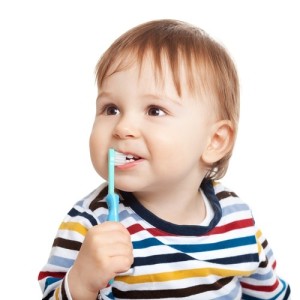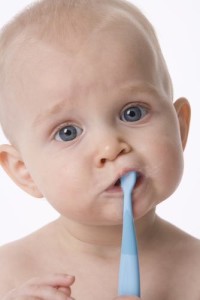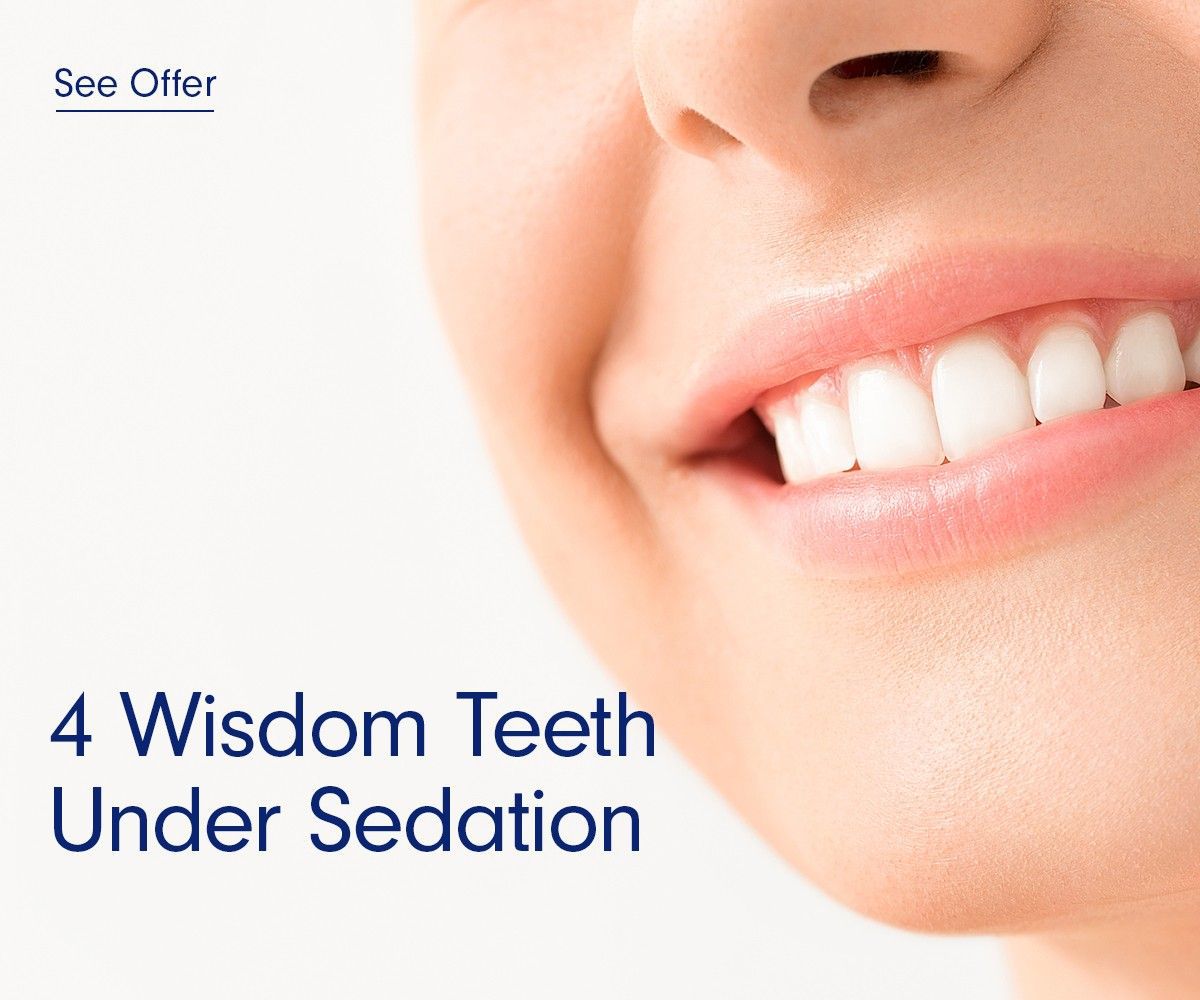When your baby gets their first teeth, it is a very exciting occasion. Everyone is happy about this milestone. After the celebration, however, it is time to begin oral care. Your baby is never too young to have their teeth cleaned. In fact, starting oral hygiene as soon as your baby begins to get their first teeth will give them better overall dental health their entire lives.
 How Do You Care For Your Baby’s First Teeth?
How Do You Care For Your Baby’s First Teeth?
The best way to take care of your baby’s first teeth is to rub a warm, wet cloth over their teeth and gums twice a day. This helps remove the bacteria that leads to tooth decay and will not be too uncomfortable for your baby. Be sure to check your child’s teeth carefully under proper lighting to ensure nothing is missed. Starting this young will also help your baby learn as they grow to take care of their teeth. The action of cleaning their teeth when started this young will be a natural thing for them to do each day.
Special Brushes And Cleaners For Your Baby and Toddler
When your baby is old enough to hold a spoon, you can begin to teach them to use a toothbrush. You want to purchase a very small one designed for babies that has ultra-soft bristles. Make sure that they can hold it easily in their hands.
You do not want to use a fluoride toothpaste before they are three years old. Fluoride toothpaste should not be swallowed, and for very small children this may not be possible to control. There are several products on the market that are made for baby teeth care that do not have fluoride and do not foam up so that they can learn how to clean their teeth without problems.
When you are teaching your baby and toddler to brush their teeth, make sure you show them how to brush around the edges of the gums and the open spaces where teeth have not yet developed. Keeping the area around their gums clean will help reduce plaque buildup and reduce the chances that your child will develop gingivitis.
 Why It Is So Important To Care For Baby Teeth
Why It Is So Important To Care For Baby Teeth
The Center for Disease Control (CDC) has issued a report stating that cavities and gingivitis is the leading sickness in children 10 and younger. Tooth decay in kids and gum problems in this age group exceed problems with asthma and allergies. Nearly 20 percent of all children before the age of three have at least one cavity because tooth cleaning did not begin early enough
The CDC further stated that nearly 51 million school hours are lost each year due to dental problems in children. Many of these issues could be avoided if proper care is started when teeth first come in. The report even recommends that parents wash the gums of babies each day before the teeth break through to ensure that the mouth is prepared for teeth.
It is also very important to remember that the sugars in milk, formula, and juice can encourage bacteria growth in the mouth if it remains in there for an extended period of time. You should never put your baby to bed with a bottle and allow them to have that liquid in their mouth all night. Not only can this be dangerous, but it can also lead to tooth decay of their new teeth.
 How Do You Care For Your Baby’s First Teeth?
How Do You Care For Your Baby’s First Teeth? Why It Is So Important To Care For Baby Teeth
Why It Is So Important To Care For Baby Teeth
